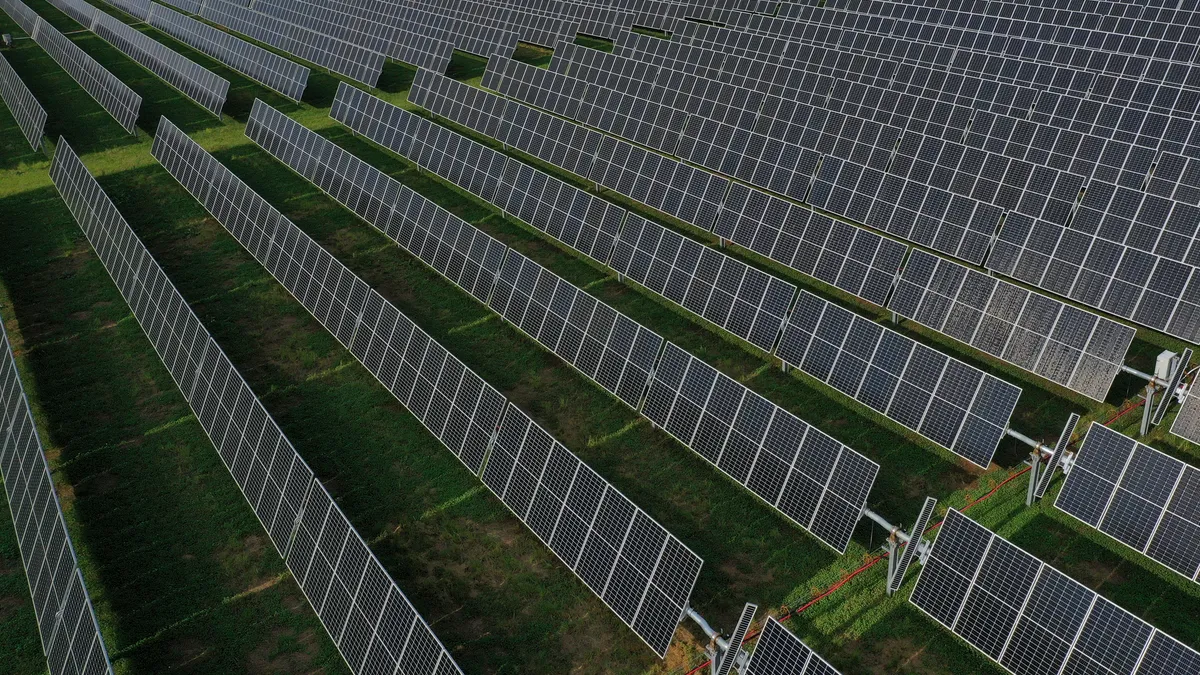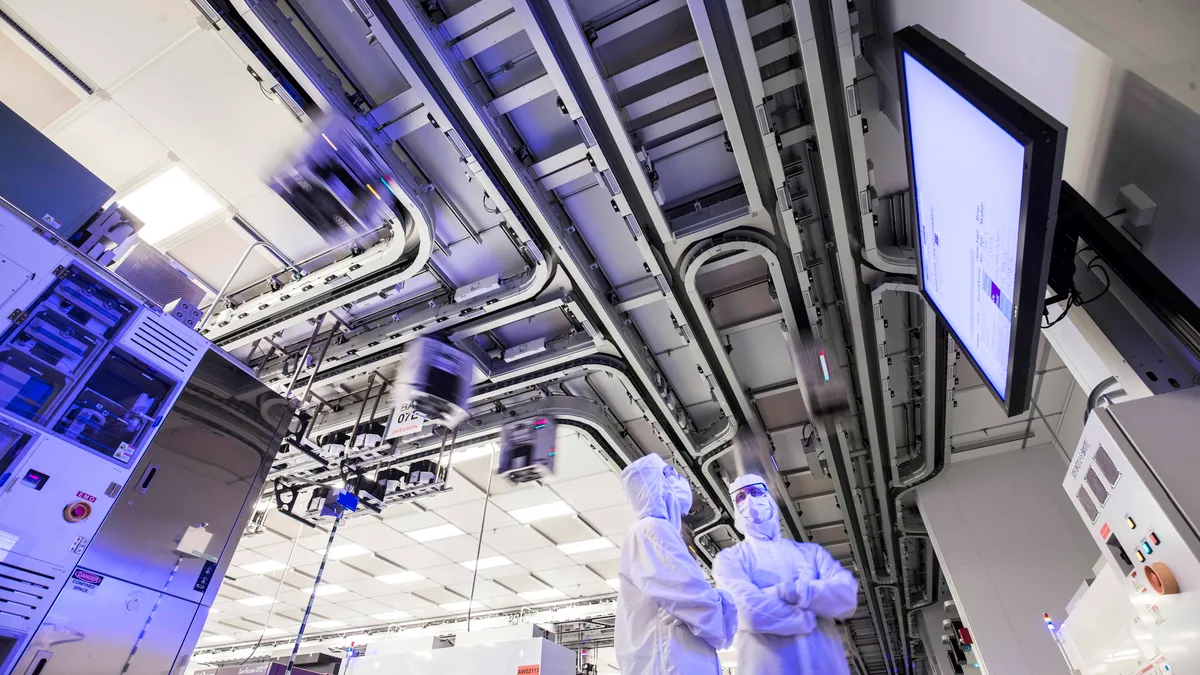Dive Brief:
- Solar joint venture VSK Energy plans to invest up to $1.5 billion to develop a vertically integrated solar manufacturing operation in the U.S., the company announced late last month.
- The U.S.-based venture between Vikram Solar, Phalanx Impact Partners and Das & Co., will spend $250 million on the first phase of the project — a photovoltaic (PV) module factory in Brighton, Colorado. The facility is slated to begin production with a yearly capacity of 2 GW in 2024, with a planned expansion of up to 4 GW.
- The second phase would see VSK Energy gain complete control over its solar manufacturing processes by developing a $1.25 billion factory in the South to produce key parts, such as solar ingots, cells and wafers by 2025.
Dive Insight:
VSK Energy is not the first industry player to pursue a complete solar supply chain in the U.S. as the Inflation Reduction Act incentivizes domestic clean energy production.
In January, South Korea-based energy company Qcells announced plans to spend over $2.5 billion on a solar factory in Georgia for solar ingot, wafer, cells and finished panel production, which at the time of the announcement, would have made it the largest fully integrated solar manufacturing site in the country.
Although the U.S. is the second largest PV market, making up 10% to 15% of global demand, the solar supply chain relies on products from China – a country the U.S. has an unpredictable trade relationship with, due in part to evidence of forced labor, the Department of Energy said in a fact sheet.
China produces nearly 97% of the world's silicon wafers, a key component of PV modules derived from the raw material polysilicon. Fifty-four percent of the country’s polysilicon production takes place in Xinjiang, according to the department. The U.S. Uyghur Forced Labor Prevention Act prohibits all products originating from that region from being imported unless it can be proved the entity’s goods are not produced using forced labor.
As the U.S. frees up resources to reestablish domestic solar manufacturing, aligned with Energy Department recommendations, solar companies are working to shore up production capacity along the value chain.
“The VSK partnership embodies the Phalanx commitment to promoting U.S. green energy independence,” Partner and Phalanx Co-Founder Doug Bennett said in a statement. “By establishing a vertically integrated solar panel manufacturing operation to produce American-made solar equipment, we are accelerating the energy transition in the United States [and] reducing foreign dependency.”












